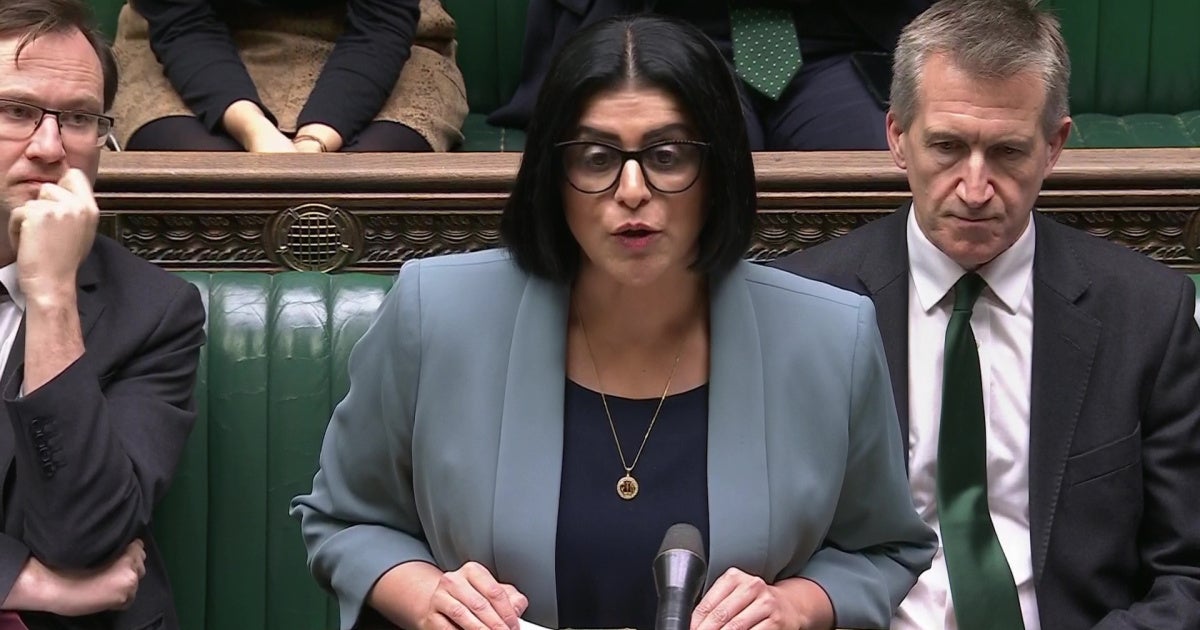“Do you have any idea if this will affect me and my family? I was barely feeling stable in the UK.” These were the words of an Afghan friend, granted asylum in the UK from the Taliban, after she learned of the Home Secretary’s plans to overhaul the rules that had offered her safety and a future in this country. Her anxiety captures the chilling reality for refugees across the UK: people recognized as in need of protection, now thrown into a state of deep uncertainty by a government determined to make their lives precarious.
Shabana Mahmood’s newly unveiled asylum and returns policy is being sold as a moment of ‘restoring order’. In truth, it marks a profound retreat from the humane, pragmatic approach Labour promised voters. It would entrench a system in which compassion and legal obligations are conditional, protection is temporary, and belonging is something to be earned rather than recognized.
The headline reform — the shift to a 30-month “temporary protection” status — fundamentally redefines what it means to be a refugee in Britain. Protection is a provisional status, subject to periodic reassessment. Family reunion will no longer be guaranteed. Refugees will know that their safety can be revoked every two and a half years. The 1951 international Refugee Convention allows refugee status to end only when the original dangers have genuinely disappeared — a high bar that governments, not refugees, must prove.
Alongside this sits another dramatic change: a 20-year route to permanent residency, replacing the current five years. Even after two decades, permanence will be conditional on a new “earned settlement” test. Those granted asylum must prove their worth for much of their lives nd will possibly be separated from their loved ones. This is managed insecurity. It is cruelty.
I witnessed a similar approach in Australia. In the late 1990s, Australia introduced a policy of temporary protection for recognized refugees. I saw children and families struggle with profound psychological distress, unable to build stable lives despite working and contributing to their communities.
In 2023 the Albanese government finally recognized the failure of that system and provided pathways to permanent protection. Now, the UK Labour government appears intent on importing the same failed and inhumane model.
Labour should recognise the enormous contributions refugees make to our society and economy, as well as the moral and legal obligation to provide protection. A new LSE report suggests that each refugee admitted under a fair and efficient system could contribute over £260,000 to the UK economy, with a net benefit of £53,000 per person. Supporting refugees with English language training, early employment, and legal aid boosts integration and reduces costs. Mahmood’s policy, by contrast, is economically counterproductive along with morally repugnant.
Labour’s proposals are not only regressive but impractical. Mahmood cites the asylum backlog as justification, yet subjecting refugees to repeated assessments will only strain an already overstretched system. She parades safe routes and student visas as positive steps this government will take —but conveniently ignores the safe routes the government has closed, including for Afghans who worked alongside UK troops and the restrictions placed on students from taking up scholarships due to the government denying visas to family including children.
Despite Mahmood’s attempts to frame her proposals as necessary to instill public confidence in the asylum system, they reveal a willingness to sacrifice the vulnerable for political expediency. By casting migration as a threat to national stability and promising ever tighter controls, her plan echoes narratives honed by the populist far right that perpetuates a hostile environment for migrants.
Temporary protection, long-delayed settlement, and conditional rights are not solutions; they are political theatre at the expense of people whose lives and futures are already fragile. This is precisely the terrain that Reform UK and its allies seek: migration as a security problem, refugees as a burden. A Labour government should not be adopting this playbook.
Labour risks treating compassion as weakness and cruelty as the only credible currency of control. That is not pragmatism; that is capitulation. This is the moment when the Labour government — and the party as a whole — must reckon with its own soul.
The UK has a long tradition of offering sanctuary to people fleeing persecution. Labour promised to combine pragmatism with humanity. Mahmood’s plan breaks that promise. Refugees are not problems to be managed—they are people whose safety and dignity should be protected and who, given the chance, will contribute immensely to our society. This government should be developing safe and complementary routes that offer asylum seekers a way to reach the UK — instead they are leaving people with no viable options but perilous journeys.
We have seen the injustices caused by a hostile environment with the treatment of the Windrush generation — yet instead of learning from that shameful chapter, Mahmood’s proposals risk recreating the same architecture of precarity, this time aimed squarely at refugees. The Labour government needs to remember these lessons. Otherwise, it risks not only betraying its principles but emboldening the very forces of fear and division it once claimed to oppose.
